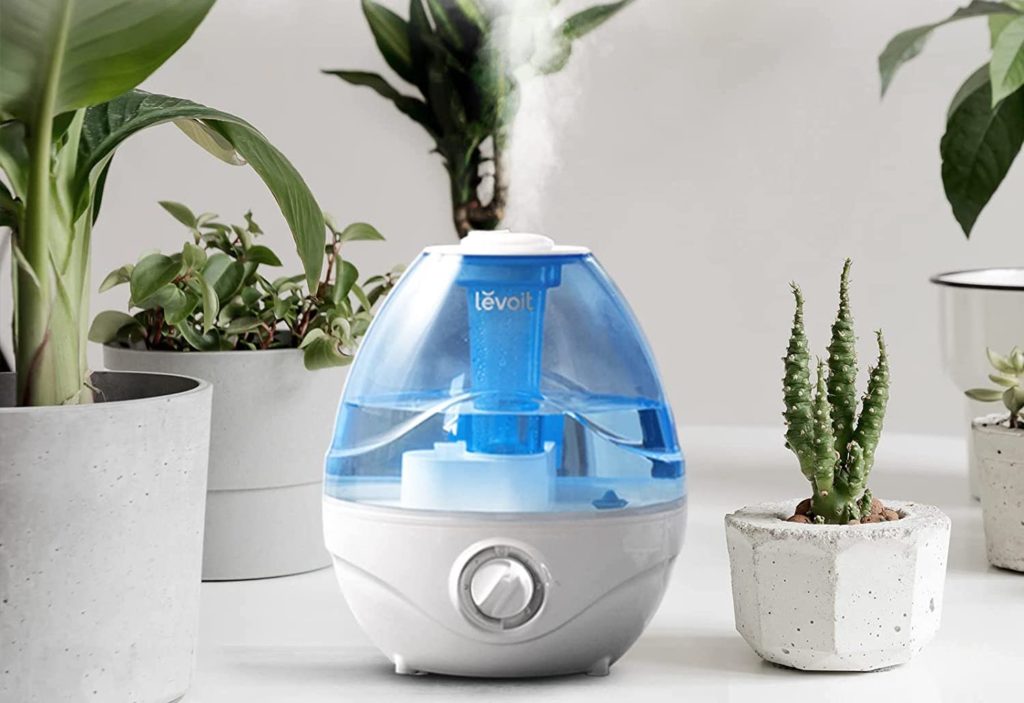A humidifier can offer many health benefits to a person. It helps keep the air moist, preventing dry skin, congestion, and other health problems. This article will explore some of the critical advantages of a humidifier for health.
The benefits of humidifiers for health
Let’s look more in-depth into each of these advantages one by one:
- Prevention of dry skin: One of the most common reasons people use humidifiers is to prevent dry skin. Dry air can cause the skin to become irritated and cracked, but by keeping the air moist, a humidifier can help to alleviate this problem. In addition, humidifiers can also help to keep the skin looking youthful and plump by preventing the evaporation of moisture from the skin.
- Relief from congestion: Congestion can be caused by many different things, but dry air is often a contributing factor. When the air is dry, it can cause the mucus in the nose become dried out and crusty, making it difficult to breathe. A humidifier can assist wet the air and facilitate breathing, relieving congestion.
- Soothing of sore throats: Dry air can also lead to sore throats. Many people wake up with a sore throat in the morning because the air has been too dry overnight. A humidifier can help to alleviate this problem by keeping the throat moist and hydrated.
- Reduction in static electricity: Static electricity is often more pronounced in dry air. It can be a nuisance but can also lead to shocks when touching metal objects. Humidifiers can help to reduce static electricity by adding moisture to the air.
- Prevention of nosebleeds: Nosebleeds are another common problem associated with dry air. When the air is too dry, it can cause the blood vessels in the nose to become dried out and cracked, leading to nosebleeds.
- Protection of wood furniture: Wood furniture can also suffer from dry air. When the air is too dry, it can cause the wood to crack and split. It is why it’s essential to use a humidifier in rooms with wood furniture. The humidifier will help to keep the air moist and prevent the wood from drying out and cracking.
How to Select the Best Humidifier for Your Requirements
There are a few things to consider when choosing a humidifier, including:
The size of the unit: Humidifiers come in various sizes, so choosing one that is appropriate for the space you want to use it in is essential. A personal humidifier will be sufficient if you only need a small unit for a single room. However, if you need a larger unit for an entire house, you should look for a whole-house humidifier.
The type of humidifier: There are two main types: evaporative and ultrasonic. Evaporative humidifiers work by evaporating water into the air, while ultrasonic humidifiers use ultrasound to create a fine mist. Both types of humidifiers are effective, so it’s a matter of personal preference as to which one you choose.

The features: Humidifiers come with various features, so choosing one that has the features you need is essential. For example, some units come with filters to remove impurities from the water, while others have built-in humidistats to help maintain a consistent level of humidity. Choose a unit with the features you need that will be most effective for your needs.
The price: Humidifiers can range from around $30 to over $200. It’s essential to choose a unit that fits your budget, but be sure to consider the features and size of the unit as well. A more expensive unit is not necessarily better than a less expensive one, so be sure to compare the features and choose the unit that is right for you.
The warranty: Be sure to check the warranty before purchasing a humidifier. Most units come with a one-year warranty, but some have more extended warranties.
The importance of maintaining a healthy humidity level in your home
There are a few things to keep in mind when trying to maintain a healthy humidity level:
Use a hygrometer: A hygrometer is a tool that measures the amount of moisture in the air. Using a hygrometer to monitor your home’s humidity level and ensure it stays within the ideal range is essential.
Please don’t overdo it: It’s important not to add too much moisture to the air. If the air is excessively damp, mould and mildew might grow. Monitor the humidity level with a hygrometer and only use a humidifier when necessary.
Use a dehumidifier: If the air in your home is too moist, you can use a dehumidifier to remove excess moisture from the air. Dehumidifiers are available in various sizes, so be sure to choose one that is appropriate for your needs.
Ventilate your home: Ventilation is essential for maintaining a healthy humidity level in your home. Be sure to open windows and doors when weather permits to allow fresh air into your home.
You can keep your home’s humidity level healthy and reap all its advantages by adhering to these suggestions. Be sure to use a top-fill humidifier and dehumidifier as needed, and ventilate your home to keep the air fresh. With a little effort, you can create a healthy and comfortable environment for your family.






